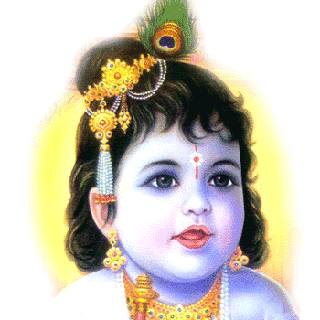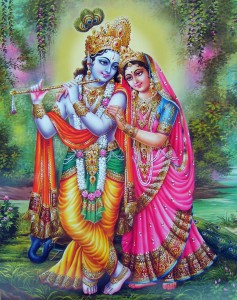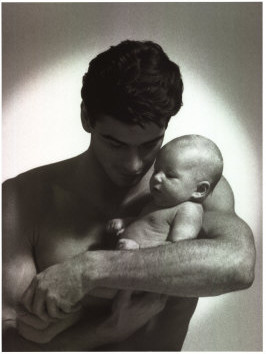the Bible on another previous life of Jesus
Biblically “proving” that David and Jesus are one and the same.
Biblically “proving” that David and Jesus are one and the same.
The terms “atheism,” “monotheism,” and “polytheism” seem straightforward enough… BUT important ambiguity lurks in the root term “theism.”
My paper “On Counting Gods” has just been published in the new TheoLogica journal.
By me, here at the excellent Internet Encyclopedia of Philosophy (printable version). A taste of it: …pluralistic approaches to religious diversity say that, within bounds, one religion is as good as any other. In contrast, exclusivist approaches say that only one religion is uniquely valuable. Finally, inclusivist theories try to steer a middle course by agreeing with exclusivism that one religion has the most value… Read More »new article surveying Theories of Religious Diversity
Dr. Winfried Corduan is emeritus Professor of Philosophy and Religion at Taylor University, and has been a blogger since before it was cool. His scholarship is thorough, multi-disciplinary, insightful, and informed by his own travel and conversations. He’s well known among students of apologetics for his informed engagement with members of other religions.
Dr. William Vallicella, aka the Maverick Philosopher, believes that existence exists. In this semi-autobiographical episode, we continue our discussion from last week, this time focusing on Dr. Vallicella’s views on existence, naturalism, and God. We also touch briefly on monism and Advaita Vedanta Hinduism.
At Christianity Today, some Christian scholars fondly remember the recently deceased Dr. Marcus Borg, liberal Bible scholar. Dr. Ben Witherington praises him as a “Christian churchman.” I guess I have no objection to that description, so long as we supplement it with this observation: Dr. Borg was a longtime atheist, who had moved from monotheism to agnosticism to atheism, like so many. It’s just that… Read More »Marcus Borg’s atheism
We mustn’t offend people in other religions, right? That’s a standard of behavior many present-day Americans, Europeans, Indians, and others accept. And it’s a standard assumed as obvious in many academic contexts. But is it consistent with Christian values? The two bold apologists in the video below argue that it is not, citing New Testament precedents. We could also ask whether this no-offense standard is… Read More »Jay Smith and David Wood on religious confrontation vs. dialogue
Here, from BBC4’s Beyond Belief podcast, is an interesting and wide-ranging discussion of avatars in Hinduism vs. catholic Incarnation claims, and also avatars in science fiction. (Alternate link, stitcher) How, you ask, does an avatar differ from an incarnation? (This is me talking now, though they say most of this in the episode.) An avatar is supposed to be God himself (Vishnu, thought of as… Read More »Beyond Belief on Avatars vs. Incarnation
I’ve been thinking lately about theories about religious diversity lately, because I’m trying to finish up an article on that topic. One family of theories about religious diversity is what philosophers call religious pluralism – the idea that many religions are equally good in some way(s). This idea gets a lot of lip service in modern Hinduism. A number of modern-era Hindu thinkers, notably Gandhi,… Read More »religious diversity, pluralism, and tolerance
 A few thoughts on re-reading Sudduth’s open letter explaining his conversion.
A few thoughts on re-reading Sudduth’s open letter explaining his conversion.
Saith Sudduth,
Krishna is the all-attractive Absolute who is manifested in the different religious traditions of the world. There is merging into impersonal Brahman. There are also distinctly theistic experiences in which the self encounters a personal God.
The ultimate being is either personal or not. Thus, it can’t be that both the aforementioned experiences are veridical, i.e. represent God as God really is.
I think Sudduth agrees; he goes on to explain that “merging” experiences are something like the devotee coming in contract with what some would call the “energies” of God. Of course, Indian philosophers like Sankara would disagree. And I don’t know why we should accept Sudduth’s claim that:
…that transcendental consciousness (the aim of nearly all religious traditions) is in fact variegated in nature.
I don’t know that there is any one general sort of experience which nearly all traditions aim at. Experiences of a loving god are not at all like the sorts of experiences monistic types profess, wherein, they say, Read More »A Few Thoughts on Sudduth’s Open Letter
Dr. Win Corduan responds to this site (which probably appears to many as a credible source). I’ve enjoyed a couple of Dr. Corduan’s books, in particular this one. Corduan continues: part 2, part 3, part 4, part 5, part 6, part 7, part 8, part 9, part 10. (Whew!) Seems that he’s finished a new edition of the book I mention above – cool! Update: new interview with Dr. Corduan:… Read More »Win Corduan compares Christ and Krishna
 Given my scholarly interests in Hinduism, I had to post a link to this story about the conversion of a Reformed Christian philosopher to a form of Hinduism.
Given my scholarly interests in Hinduism, I had to post a link to this story about the conversion of a Reformed Christian philosopher to a form of Hinduism.
Pictured here are Krishna and his lover Radha. I take it that in Sudduth’s form of Hinduism Krishna is an avatar of Vishnu. Other Hindus consider Krishna to be the high god himself.
There is much art celebrating the love of these two.
The story for me was a bit spoiled when I watched a documentary in which a Hindu, Indian man explained that (at least on some versions) Radha is married to another, and is Krishna’s aunt. Perhaps some would object that I’m not looking at it metaphysically enough. (Update – to be fair, some Hindu sources assert them to be unrelated and married – see comment #11 below.)
In another famous episode, Krishna charms a bunch of cow-herding ladies.
I’m curious to read more about Sudduth’s conversion. How does one get from Calvin’s all-determining triune deity to Vishnu? I wonder if it is by way of fairly mainstream trinitarian modalism…
Myself, as I read Sudduth’s interesting narrative of his conversion I’m not sure where, i.e. with what sort of Christianity, he was starting from. I too have taught the Gita in an academic setting, but I have not had experiences like this:
Around 4:20am (Friday morning) September 16th, I woke suddenly from a deep sleep to the sound of the name of “Krishna” being uttered in some wayRead More »Reformed Christian Philosopher Converts to Hinduism
Could a god have been a baby? It depends on what it takes to be a real god… Hindus who believe in avatars, and catholic Christians say: yes, this is possible, for it has been actual. In Hinduism, this is particularly emphasized in Vaishnavite traditions, in Christianity, Roman Catholicism. They of course differ about which god this was. For other Christians, the answer is no. In… Read More »God the baby – Rama / Ram, avatar of Vishnu – Reloaded

Last Christmas season I posted in a slightly Grinch-like way about catholic Incarnation theories, and about some Christians’ lack of critical thinking about them.
There’s an interesting human impulse observable here. The best analogy I can think of right now is posters like the one to the left. The ladies love them.
Why? There’s the sex appeal of the dude. And the cute baby. Everyone likes a cute baby.
But there’s something else, something affecting about a big, strong, tough manly man, stooping to gently cradle a teeny, vulnerable baby. He’s made himself so vulnerable. Of course, that adds to the “sexy” part. My point is, the affecting nature of the man’s condescension is a distinct element of the appeal.
Now imagine that God, big strong God, becomes an ignorant, weak, dependent little baby. There’s a similar, recognizable emotional tug there. What an amazing idea! Of course, it may be amazing in part because it’s contradictory. But I’ll not argue that here.
Instead, a bit of cross-cultural comparison. Christians aren’t the only ones who go in for the idea of a god who comes down from his mighty position, to be a cute, puny little baby.
The Ramayana is an epic poem, and a sort of scripture in Hinduism. Parts of it go back perhaps to the 400s BCE, though it comes in many versions, some of which are from the high middle ages. The clip below is from a wildly popular Indian television series from 1986 called Ramayan. If you’re interested in Hinduism, I recommend it, but it’s a real time commitment to watch the whole thing. I’ve edited some bits of it, to include the more theological parts, and to get it down to youtube length. It’s here, Ram or Rama, is supposed to be an avatar of the god Vishnu.
My point is notRead More »God the baby – Rama / Ram, avatar of Vishnu
V.V. Raman is an emeritus professor of Physics at the Rochester Institute of technology, and has written a number of works on science and religion, his Indian heritage, and other subjects relating to the history of science, and the relation of the sciences to the humanities. Also, he’s a poet. Watch his interview by Dr. Robert Lawrence Kuhn here (click the blue button) and read… Read More »Is God a Self? Part 5 – Varadaraja V. Raman